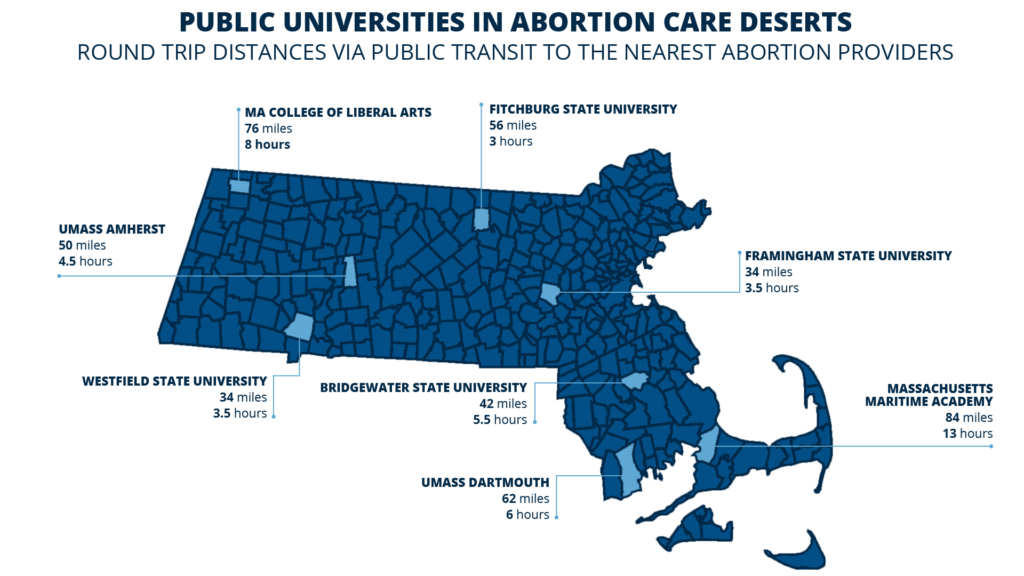In 2019, State Representative Lindsay Sabadosa introduced a bill into the Massachusetts House of Representatives that would require state colleges and universities to provide medication abortion to students in their health centers. It is of the utmost importance that the Massachusetts legislature passes this bill. Students across the state are unable to access proper care when they need it due to time, distance, and financial constraints that occur when medication abortion is not available on college campuses.
If a student at a public university in Massachusetts wants to have a medication abortion, they may have to travel multiple hours and multiple miles round trip to the nearest clinic. One study from a professor at Smith College concludes that students in Massachusetts have to travel between 2 and 42 miles to receive care, which can take between 18 and 400 minutes.
Accessing medication abortion care off-campus also comes at a price. The same study also concluded that the estimated cost for this travel is $680. This does not include the price of the abortion itself.
Students who do not have access to their own vehicle or a trusted friend or person to bring them to their appointment must rely on public transportation, and this requires even more time and money to access care. For example, a student at Westfield State University using public transportation must travel 34 miles round trip to the nearest clinic in Springfield, which can take up to three and a half hours.
This can often be an all-day event, causing students to miss class, work, or other obligations simply to access healthcare.

Bill H.2399, titled “An Act to Require Public Universities to Provide Medication Abortion” would significantly cut down on these expenses. Students would be able to access reproductive healthcare on their college campuses, eliminating the need to travel long hours when they are already going through a difficult time.
Providing medication abortion on college campuses is not a new idea. In 2019, California passed a law that would require public universities to provide this care by 2023.
Additionally, the University of Massachusetts Amherst will begin to provide students with medication abortion beginning in the fall of 2022, regardless of what happens with the legislation. University officials decided to make this change after student organizers expressed a need for access to medication abortion. They also cited the notable distance from the nearest clinic as a reason for making this change.
Frequent opposition to this legislation involves the safety of medication abortion. However, medication abortion has been proven to be safe. According to the University of California San Francisco, the drug used for medication abortion has an adverse event rate of 0.31%.
As the fate of Roe v. Wade and the right to choose is being threatened throughout the country, it has never been more important for elected officials to ensure their constituents have access to the care they need.
When students cannot access medication abortion on their college campuses, they lose time, energy, and money traveling long hours to access care. Individuals incur financial expenses and delays to care, and students in marginalized groups are impacted even greater. This bill would lessen the barriers that impact students.
If this is something you care about, I urge you to contact your local elected official and make your voice heard. Passing this bill is one small way to improve access to reproductive care for young people in Massachusetts.



























